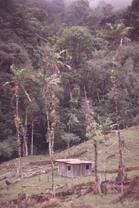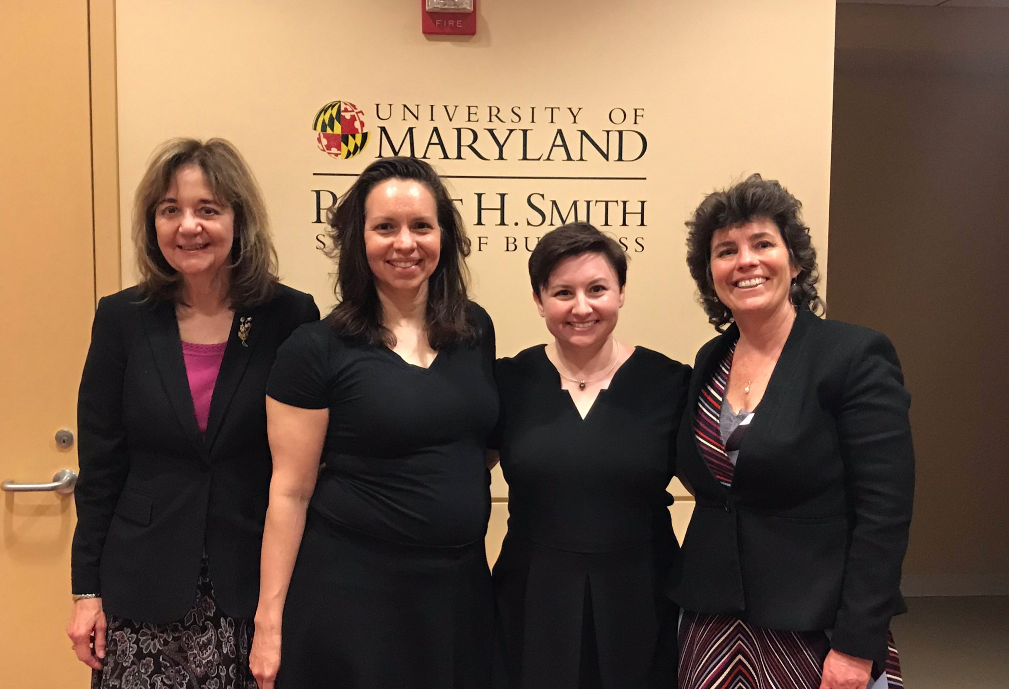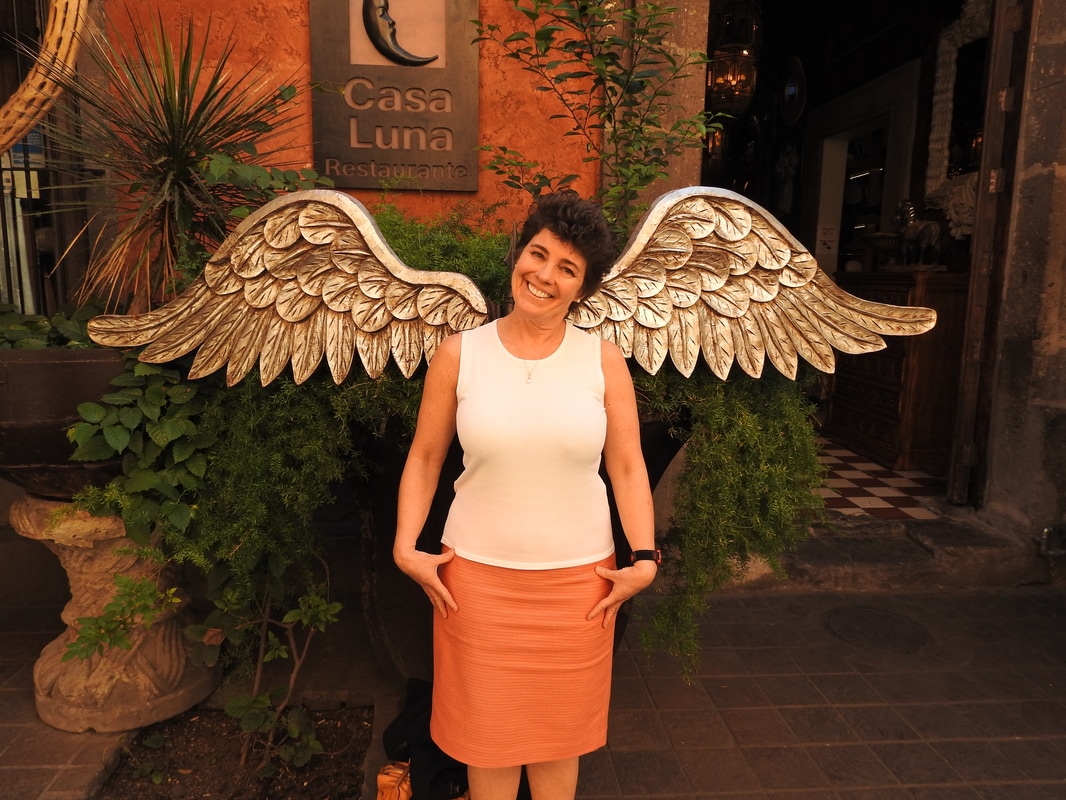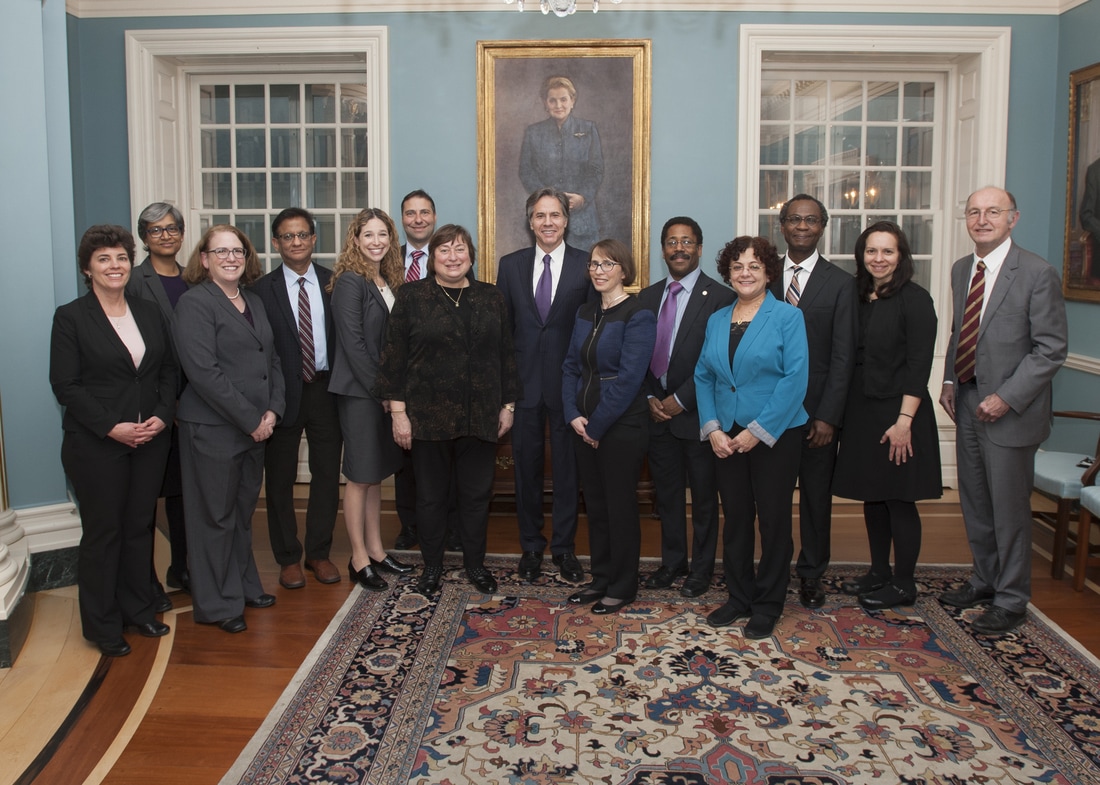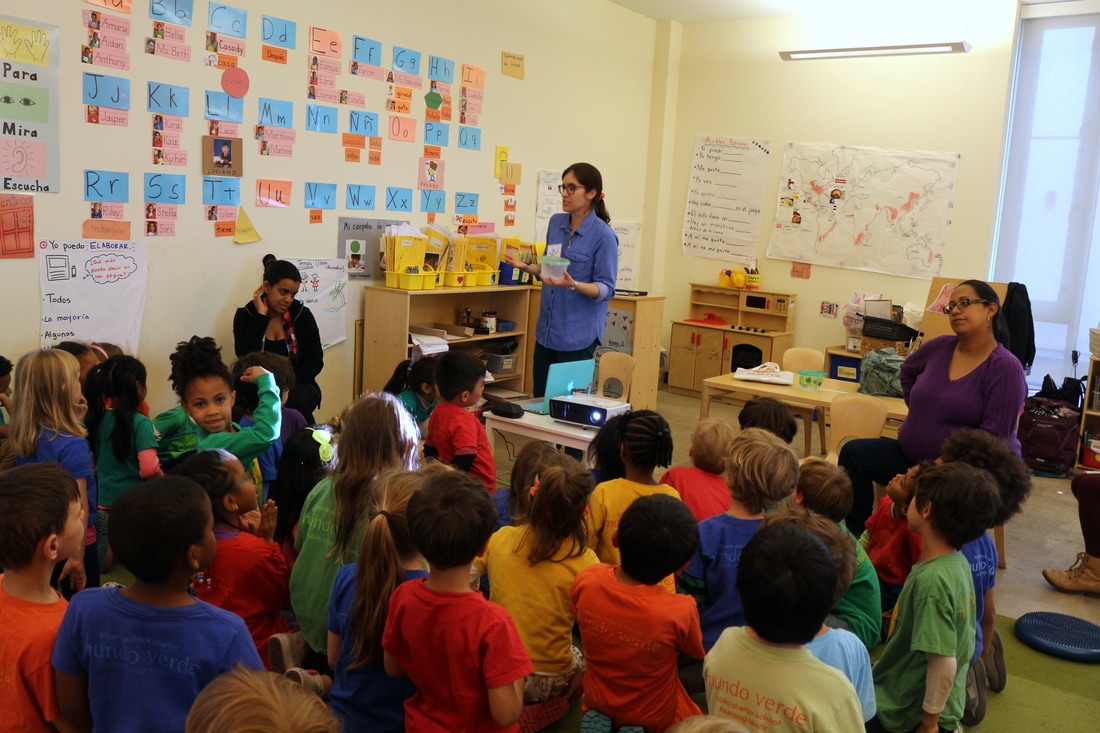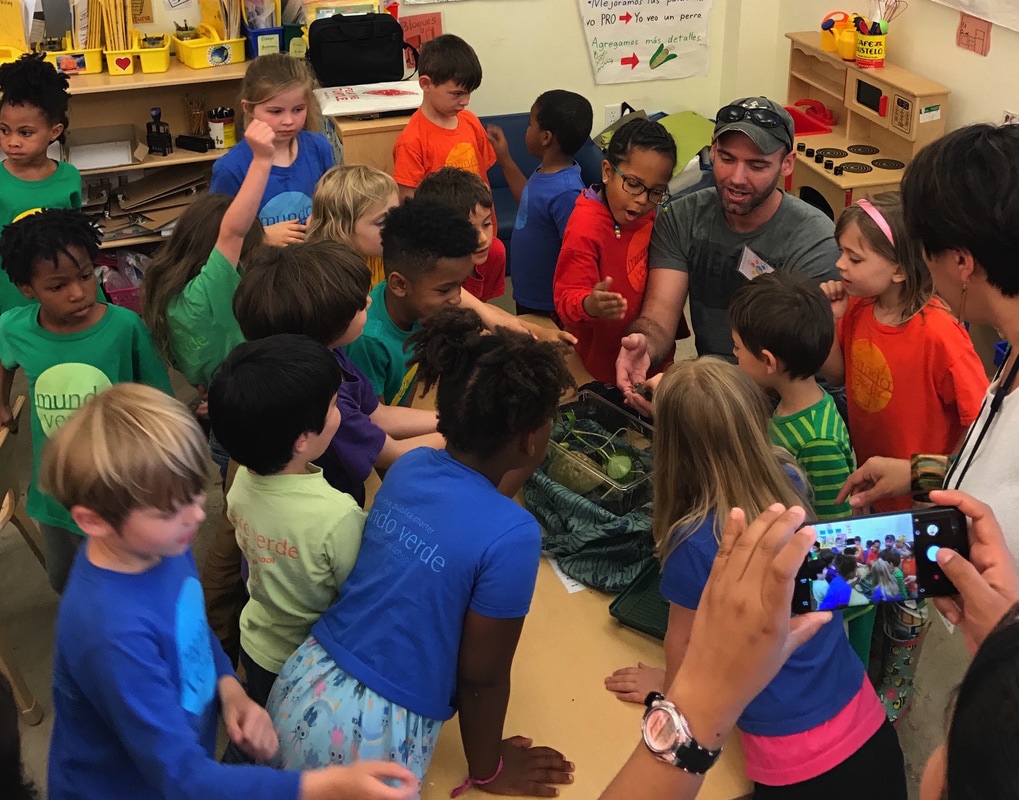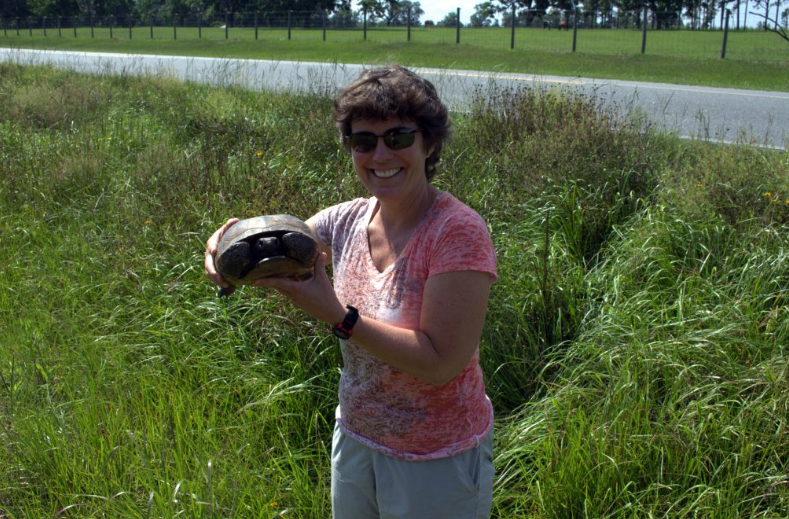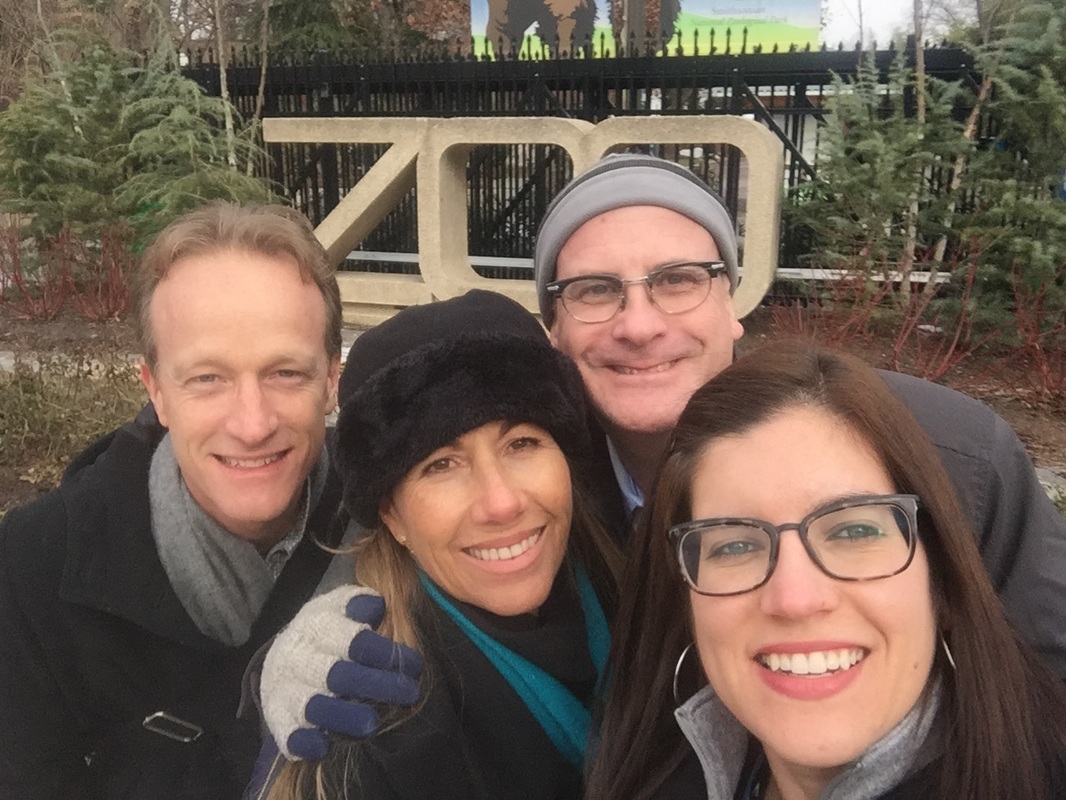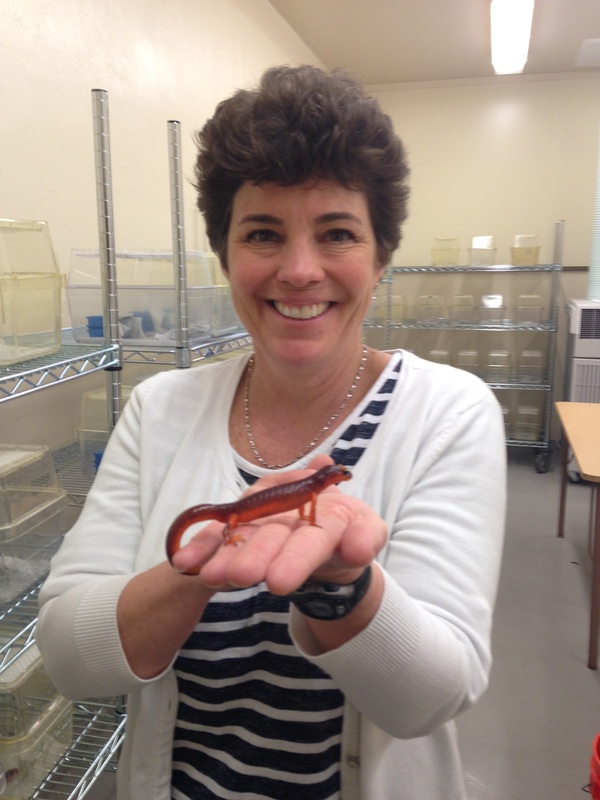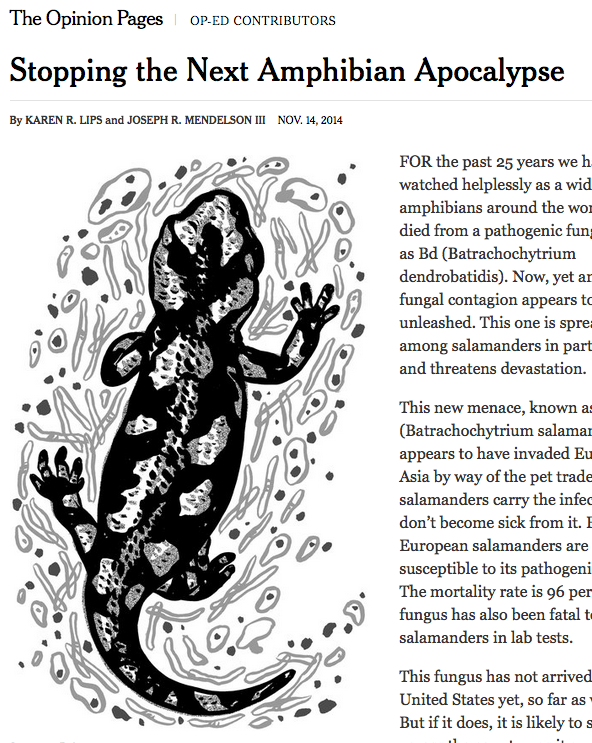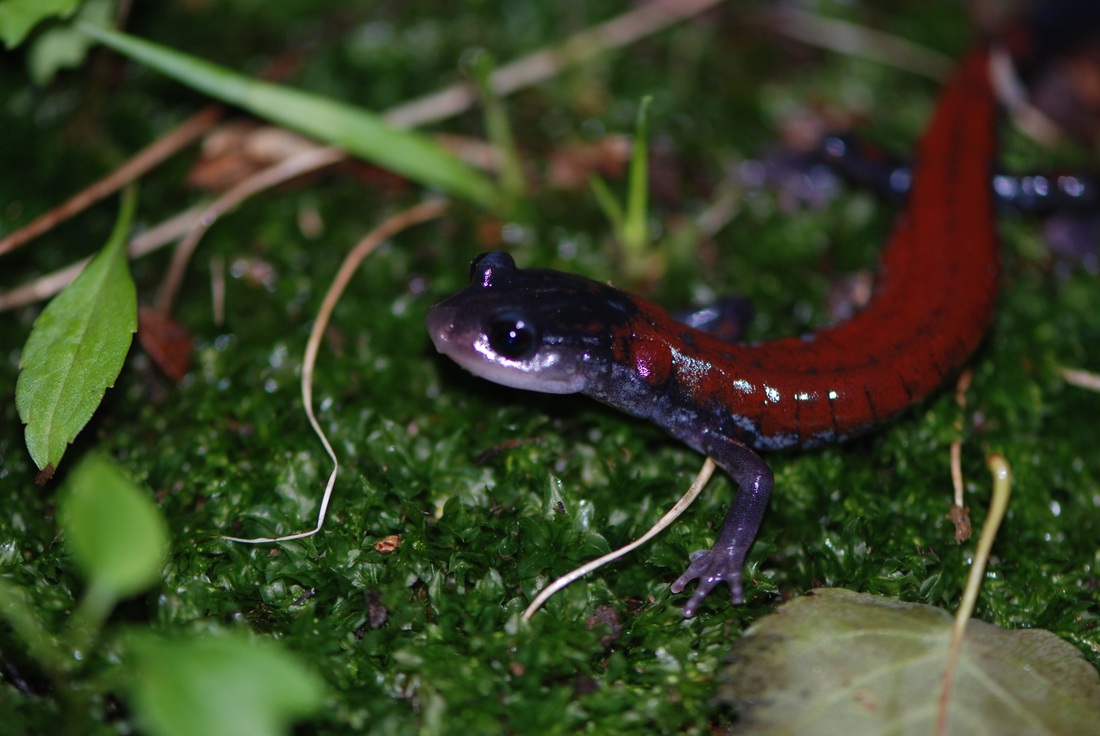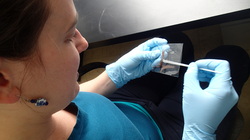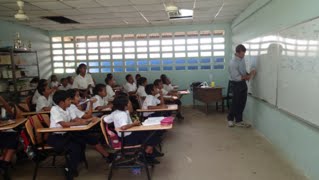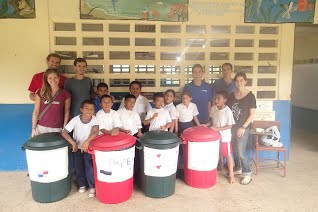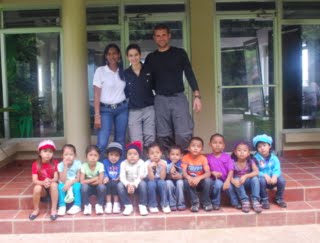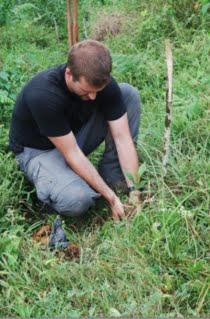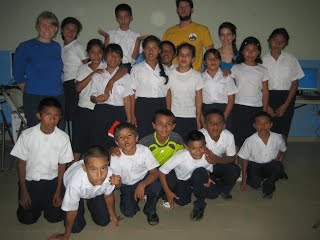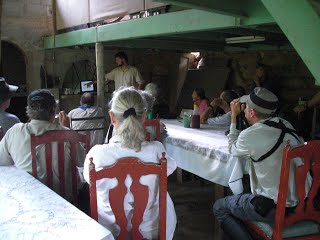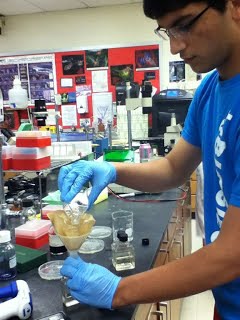|
|
2020
Here's an interview with the BBC's program Witness History on The Mystery of the Disappearing Frogs. Maddie Sofia the host of NPR's new podcast, ShortWave Radio, did an interview on being an eyewitness to extinction. 2019 Thanks to Jen Stabile for writing up an interview she did with me for the series Profiles in Conservation published in Herp Review. You can find a copy on ResearchGate. During the spring semester Karen worked with her UMD colleagues Kathleen Vogel, Melissa Kenney (now at UMinnesota) & Rosina Bierbaum to offer a 6 week workshop to graduate students and postdocs from across campus on Scholarly Communication and Public Engagement (SCOPE). We had a great time working with early career scholars in effective communication, working with policy makers, and building relationships with stakeholders. Here is a lovely video summarizing the key findings of the Scheele et al. paper published in Science in January describing the impacts of chytrid pathogens on amphibians. 2018 Are you looking for teaching materials for an environmental science course? Karen and UMD library staff developed a Lesson Plan in making ESRI StoryMaps using ARCGIS for undergraduates who had never used GIS before. You can find the class teaching notes, story narrative, and supplemental materials here: https://community.esri.com/community/education/blog/2018/12/19/using-story-maps-as-communication-and-assessment-tools-at-the-university-level#.XBvHyAv1JHk.twitter%E2%80%8B. 2017 Are you looking for good materials on environmental policy, wildlife disease, or leadership? As part of her Leopold Leadership Program training, Karen and collaborators created an open access, downloadable, Teaching Module on Environmental Leadership through the SESYNC Case Study Workshop Program. You can find all the class teaching notes, story narrative, and supplemental materials on the Sesync website here: Stopping wildlife disease from becoming a crisis: a collaborative leadership success story. We are interested in hearing from those of you who use this case study and whether you found it useful or effective. Karen's work as both a Leshner Fellow and a Jefferson Science Fellow was profiled by AAAS here. Ana and Chace visited Mundo Verde Bilingual Public Charter School to teach the Kindergarten class about amphibians and the important roll they play in the environment. Topics included how to identify the different types of amphibians and their economic, scientific and cultural importance, followed by a show and tell. Raising the next generation of biologists! 2016 Karen & three of her Leshner Fellows wrote an Op-Ed for Frontiers in Ecology & Environment and as part of the support for increasing Science Engagement, ESA is posting a series of profiles on the authors Karen organized a symposium on amphibian declines the AAAS Meeting in Washington DC, on Friday 12 February on "Advancing Knowledge of Global Amphibian Decline with International Collaboration". See the great video Carl Shaffer & the AAS Media team made as part of the Press Conference we attended.
Elizabeth wrote a great blogpost on the new USFWS rule limiting imports of some salamanders in an effort to prevent (or slow) the introduction of the new chytrid pathogen Bsal. 2015 Karen was named one of 15 Public Engagement Fellows for 2016-17, the first year of the Alan I. Leshner Leadership Institute for Public Engagement with Science. Congratulations to Carly! She won the People's Choice Award in the 2015 U21 Three Minute Thesis (3MT) competition for her presentation of her research on how favorable microbes can manage disease in amphibian populations. You can watch her video on YouTube. In June, Karen gave a talk on A New and Deadly Foreign Pathogen Poised to Decimate U.S. Salamanders without Urgent Federal Action. As part of the NECIS Congressional Briefing on Invasive Species: New Developments in the Science and Policy of Prevention. Russell Senate Office Building, Washington DC, 18 June 2015. In June, Karen gave a Guest Lecture on salamander ecology to a group of journalism students. from Johns Hopkins U. This is a course led by Sue Eisenfeld, on Nature, Place, and the Environment: A Mountain Immersion in Shenandoah National Park, as part of the MA Program in Science Writing. In April Karen presented a poster on the Hill on Threats from Wildlife Diseases at the Coalition for National Science Funding In March Karen led a Grad student workshop on Science Communication and Social Media: at California State University, Northridge CA. Carly made an instructional video for how to swab salamanders for Bd and Bsal You can watch it on Youtube here: LINK 2014 Karen has been in the news for our recent paper in science about Bsal. Check some of the stories out here:
Karen was a Panelist on the Science Communication and Social Media: Grad student workshop at the Joint Meeting of Ichthyologists and Herpetologists (JMIH14), in Chattanooga TN. Karen presented the talk Threats to Native Species from Infectious Diseases Spread by Trade. as part of a Congressional Briefing hosted by NWF on New Invasion Risks: How invasive biofuel and imported wildlife disease threaten wildlife, agriculture and the economy. In April Karen led a workshop on Science Communication and Social Media as part of the Topicos Course, at the University of Puerto Rico. In March Karen was a Panelist and Presenter at the 2014 Reptile & Amphibian Law Conference at George Washington University Law School. Carly and Grace participated in Maryland Day, an outreach event on campus in April 2014. They developed and shared interactive event for the general public to learn about Maryland wildlife. See pictures here. Our shrinking salamander paper got some good press coverage. Check it out on: Scientific American (3.27.2014): Salamander Shrinkage Linked to Climate Change, Full Story National Geographic (3.27.2014): Climate Change Shrinks Salamanders, Full Story Nature (3.26.2014): Salamander shrinkage linked to climate change, Full Story The Christian Science Monitor (3.26.2014): Climate change makes salamanders shrink, scientists say, Full Story BBC Nature (3.26.2014): Salamanders shrink as mountain home heats up, Full Story International Business Times (3.26.2014): US Salamanders ‘Shrinking?’ Study Suggests ‘Clear’ Correlation To Climate Change, Full Story United Press International (3.26.2014): Why are salamanders in the Eastern U.S. shrinking? Full Story Headlines & Global News (3.26.2014): Salamanders Shrinking Because Of Climate Change; 8 Percent Smaller Than In 1980s, Full Story The Weather Channel (3.26.2014): Climate Change is Making Salamanders Shrink, Study Shows, Full Story Austrian Tribune (3.26.2014): Climate Change causing Shrinkage in Appalachia‘s Salamanders, Full Story The Huffington Post (3.26.2014): Salamanders Are Shrinking, Thanks To Climate Change, Full Story University Herald (3.26.2014): As The World Gets Hotter, Salamanders Get Smaller, Full Story Nature World News (3.25.2014): Shrinking of North American Salamanders Linked to Climate Change, Full Story NBC News (3.25.2014): Salamanders Are Shrinking As Their Habitats Warm Up, Full Story Science News (3.25.2014): Warming World Shrinks Salamanders, Full Story Tech Times (3.29.2014): Shrinking size of North American salamanders linked to climate change, Full Story Science Recorder (3.27.2014): Salamanders shrink as their habitats dry up, Full Story Design & Trend (3.28.2014): Salamanders are decreasing in size thanks to climate change, Full Story Science Recorder (3.26.2014): A warming planet leads to smaller salamanders, warn scientists, Full Story Science Codex (3.25.2014): Salamanders shrinking as their mountain havens heat up, Full Story Franchise Herald (3.28.2014): Salamander shrinkage: Warm, dry conditions reportedly cause animals size reduction, Full Story Mother Board (3.25.2014): Climate change is causing some serious salamander shrinkage, Full Story 2013 Carly's research presented at ESA-Minneapolis on Appalachian salamander microbiome was profiled in Frontiers in Ecology and the Environment here. Ed Kabay's paper (in review) on the role of rattlesnake predation on Lyme disease got some great press coverage during the ESA meeting in Minneapolis: ClimateWire (8.7.2013): Bid to save rattlesnakes may be important to curbing Lyme disease, Full Story Science Daily (8.6.2013): Timber rattlesnakes indirectly benefit human health: Not-so-horrid top predator helps check Lyme disease, Full Story Nature World News (8.6.2013): Timber rattlesnakes help control the spread of Lyme disease, Full Story http://www.wypr.org/podcast/8-21-13-how-rattlesnakes-are-good-human-health Sacramento Bee: http://www.sacbee.com/2013/08/07/5630704/timber-rattlesnakes-vs-lyme-disease.html Karen contributed a guest post on"What If There Is No Happy Ending? Science Communication as a Path to Change" at Scientific American blog. Live Science invited Karen to write an Op-Ed on amphibian declines here. Educational Outreach 2013 Panama-United States video exchange Team Panama 2013 (Grace & RET scholar Edward Kabay) continued visiting the local school in Barrigon adjacent to the park. Our goals were to teach students to recognize local species, conduct basic surveys, collect appropriate data, and record those data. Students were also involved in a video project that will be exchanged with Mr. Ed Kabay's classroom in Chapel Hill, North Carolina. This project was started to open communication between Panamanian and United States students. Through the use of videos, students will be able to share experiences and appreciate differences between temperate and tropical habitats and basic amphibian ecology. Check out our video for here more details!! Recycling program Grace and Edward established the first recycling program at the local school in Barrigon this past summer. Four large bins were donated and will be used to separate recyclable materials. A partnership with the Director at the National Park was also established to begin regular pick up of the recyclables. Students will earn money for their school based on what items and the amount of material they recycle. Guest speakers for Kindergarten class at the National Park Grace and Edward were also guest speakers for the Barrigon Kindergarten class at the National Park on a class fieldtrip. The goals of the lecture were to (1) expose students to the wildlife in their backyard, (2) teach students the differences between reptiles and amphibians, (3) teach students how to survey for animals, and (4) expose students to a few examples of live animals. Grace and Ed also took students, parents, and teachers on a guided forest walk. Reforestation project Grace and Edward were also involved in a reforestation project at the National park, sponsored by a Panamanian cellphone company. Grace and Edward spoke to volunteers about current research being conducted at the park as well as the importance of conservation. 2012 Guest speakers for Ecology class at the Barrigon School, Panama Team Panama 2012 (Grace, Nicole & REU scholar Alex Cunha) visited the local school in Barrigon adjacent to the park. Our goals were to promote science, amphibians and conservation. Students got hands-on training in amphibian species identification by looking at live frogs and listening to frog calls. Students were excited to hear that amphibian diversity in Panama is much greater than many areas, and were saddened to hear of the loss of that biodiversity. The Team also described a range of projects going on just up the road and how it has contributed to the field of amphibian declines. Guest speakers for South Carolina Association of Naturalists in Barrigon, Panama Alex honed his presentation skills in a talk on Global Amphibian Declines for the South Carolina Association of Naturalists. Nicole described effects of disease on the spatial distributions of stream frogs, and Grace described the change in diversity of tadpole communities at the site. Our goal was to increase public awareness of amphibian declines, impacts declines have on the forest ecosystem, and how a microscopic fungus has caused so many changes at this site. High school research collaboration Carly worked with Neal on developing a protocol to complete a year-long research project for his school. Neal's project focused on how concentrations of amphibian skin antimicrobial peptides affected the growth of the amphibian chytrid fungus, Bd. Carly trained Neal in the proper procedures needed to work with Bd, maintain a culture of Bd, and develop a working research protocol. She also helped Neal troubleshoot as problems arose. From this experience, Neal gained an appreciation for the fine art of getting an experiment run smoothly. He said he and his fellow students were comforted when Carly told him to not be discouraged because science is not easy. Neal is now at Georgetown University, and he hopes to continue to do disease-related research. |
